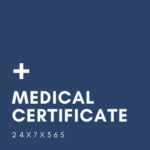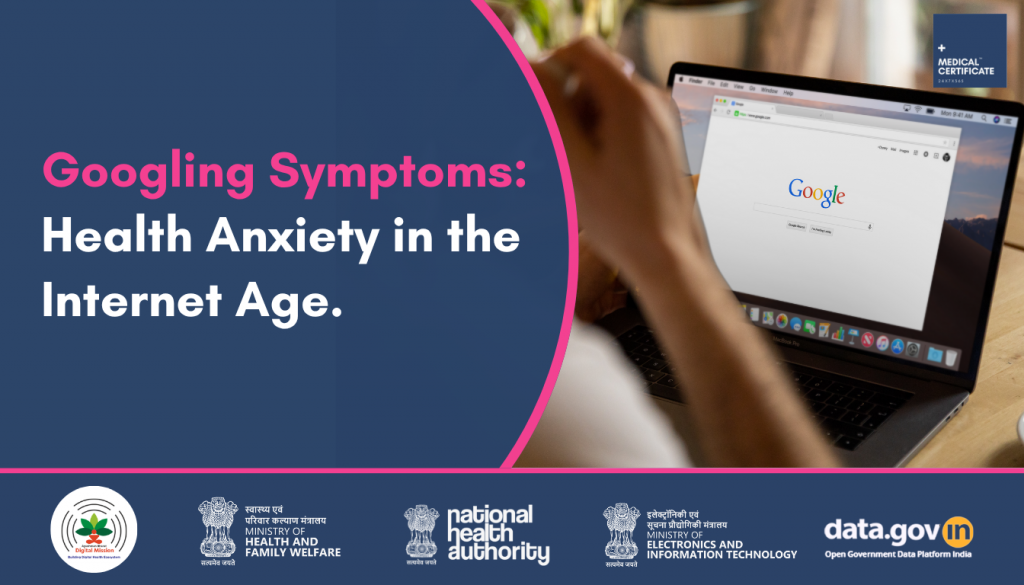“Why is my heart racing like this?”
Google says: Could be caffeine, stress… or a heart attack.
You have a one-sided headache.
Google says: Probably a migraine. Or possibly a brain tumor.
Sound familiar? You’re not alone.
In today’s digital world, it’s easier than ever to fall into the rabbit hole of health-related searches. What starts as a harmless curiosity can quickly spiral into fear and panic. This growing phenomenon has a name: Cyberchondria — the compulsive need to Google symptoms, often leading to more anxiety rather than answers.
What many people don’t realize is that this isn’t just a harmless habit. It’s a real, diagnosable mental health condition that can impact your day-to-day life — emotionally, physically, and socially.
What Is Health Anxiety?
Health anxiety is an overwhelming, persistent fear of having a serious illness, even when medical evaluations show no cause for concern. It’s not just occasional worry — it’s a constant feeling that something is seriously wrong with your body.
People with health anxiety often:
- Continuously check their body for signs or symptoms
- Frequently Google health-related queries
- Visit multiple doctors hoping to find “what was missed”
- Experience panic attacks triggered by mild physical sensations
- Avoid hospitals or tests out of fear of hearing bad news
- Seek reassurance, but never feel fully convinced
This condition was once known as hypochondria, but today it’s referred to as Illness Anxiety Disorder (when symptoms are absent) or Somatic Symptom Disorder (when symptoms are present but unexplained).
The Rise of “Google Diagnosis Syndrome”
These days, the first instinct after noticing any symptom is to open Google. And with SEO-optimized content geared toward worst-case scenarios, even something mild can sound terrifying.
Research published in the Journal of Anxiety Disorders (2020) found that nearly 80% of people search for health symptoms online before consulting a doctor. Over half feel more anxious afterward.
Search engines aren’t built to calm us — they’re built to grab attention. That means they often highlight the scariest outcomes first. Combined with misinformation from unverified sources and a natural tendency to assume the worst, it becomes a perfect storm of fear.
The Health Anxiety Feedback Loop
The real issue with health anxiety isn’t just the worry — it’s the cycle it creates:
You feel a mild symptom → You Google it → You see a terrifying possibility → Your anxiety spikes → You begin noticing more symptoms caused by stress → You search again.
Eventually, anxiety becomes the illness itself. Ironically, many of the physical effects of anxiety — chest pain, nausea, fatigue — mimic real medical conditions, further fueling the worry.
Who’s Most at Risk?
Health anxiety can affect anyone, but certain groups are more vulnerable:
- People with a history of serious illness (personal or family)
- Those who struggle with generalized anxiety, OCD, or panic disorder
- Healthcare students or professionals
- Individuals under chronic stress or emotional burnout
- People who’ve experienced past medical trauma
Populations exposed to constant health warnings — like during the COVID-19 pandemic
In fact, post-pandemic data from Frontiers in Psychology (2021) reported a noticeable spike in anxiety disorders related to health fears.
The Emotional and Social Cost of Constant Worry
Health anxiety doesn’t just stay in your head — it affects your whole life.
Mental and Emotional Effects:
It leads to sleeplessness, irritability, constant fear of death, and difficulty concentrating. Some individuals also develop depression or panic disorder as a result.
Healthcare Overuse:
Frequent doctor visits, repeated medical tests, and increased burden on healthcare systems — even when no diagnosis is found.
Work and Relationships:
Health anxiety can cause people to avoid social interactions, miss work, or feel misunderstood by loved ones. Many suffer alone because they feel nobody truly takes their fear seriously.
What You Can Do to Break the Cycle
1. Recognize the Pattern
Start by identifying when you’re spiraling. Keep a log of how often you check symptoms online or seek reassurance. Awareness is the first step toward healing.
2. Limit Online Searches
Try to resist the urge to Google every symptom. If you must, stick to verified sources like Mayo Clinic, MedlinePlus, or WHO — and limit yourself to checking just once.
3. Choose One Trusted Doctor
Avoid “doctor shopping.” Build a long-term relationship with a physician or mental health professional who understands your history and concerns.
4. Learn About Health Anxiety Itself
Understanding the nature of this anxiety helps remove its power. Therapies like Cognitive Behavioral Therapy (CBT) are highly effective in treating health-related anxiety patterns.
5. Practice Stress Management
Incorporate daily habits that reduce anxiety. Regular physical activity, journaling, digital detox, deep breathing exercises, and mindfulness can significantly ease symptoms over time.
When to Seek Professional Help
You should consider getting help if your anxiety:
- Disrupts your daily life or work
- Causes physical symptoms like chest tightness or nausea
- Persists even after medical reassurance
- Leads to obsessive searching, questioning, or reassurance-seeking
This isn’t something you need to manage alone. You’re not imagining things, and you’re not weak. You’re experiencing a legitimate, treatable condition.
Support That Understands You
At MedicalCertificate.in, we know how real this can feel.
Whether you’re dealing with a genuine health concern or simply need relief from the stress of constant worry, our doctors are here for you — without judgment. We offer:
- Verified medical consultations
- Mental health leave certificates
- Confidential support and guidance
Because sometimes, what you need most is not more searching — but real answers from someone who listens.

